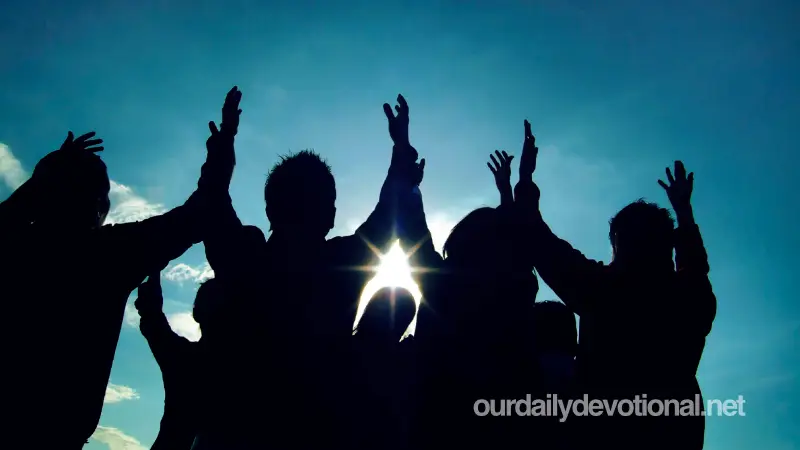The Bible, especially in the OT, contains numerous allusions to pagan deities worshiped by Israel's neighbors and by certain ancient peoples. In this article these allusions will be developed to a certain extent, it being impossible to give a complete treatise on mythology.
(a) CANAANITE PANTHEON.
The Canaanites worshiped El, the father of the gods, as their supreme god, and he is sometimes called EI-Elion (God most high) and undoubtedly "lsedek" (Justice) and "Shalem" (Peace). His wife was Asherah (Astarte), the “Lady of the Sea,” whose symbol was a sacred pole (Ex. 34:13; Judges 3:7; 6:25-28; 1 Kings 15:13; 18:19; 2 Kings 21:7; 23:6).
But the great god of the Canaanites was Baal (Owner or Lord), "Rider of the clouds", lord of lightning, dying under the blows of his enemy "Mot" (Death), being mourned by his sister-wife "Anat », the goddess of war, who brings him back to life.
Numerous localities are named after him (Baal-peor, Baal-hermon, etc.), just as he himself has many particular names: Baal-zephon (Baal of the north, Ex. 14:2); Baal-Berit (Baal of the covenant, Judges 8:33); Baal-Zebul (Baal-prince, 2 Kings 1:2). He associates himself with the bull. It is likely that Hadad was one of his names (1 Kings 15; 18). To avoid reading the cursed name of Baal in public worship, the Jews said in his place Bosheth (abomination): thus, Ishbosheth was read instead of Esbaal (1 Chron. 8:33; 2 Sam. 2: 8) .
Baal's father was Dagon, the god of grain, inventor of the plow. Under the figure of a man with the body of a fish, he was worshiped by the Philistines (Judg. 16:23; 1 Sam. 5:2-7; cp. Jos. 15:41) and in Beth-shean.
The great goddess was Ashtoreth or Astarte, goddess of fertility, whose sexual cult was a source of degrading immorality, since her priestesses indulged in sacred prostitution (Judges 2:13; 10:6; 1 Kings 11 :5, 33; 2 Kings 23:13; cp. also the prostitutes mentioned in 1 Kings 14:24; 15:12; 22:47). Her cult appears to have been imported from Mesopotamia, where she was worshiped under the name Ishtar. She is associated with the evening star, Venus.
Moloch (Heb. "Melek" = "king"), divinity of the Ammonites, who demanded monstrous sacrifices of children, who were burned in her honor. He is sometimes identified with Milcom (1 Kings 11:5, 33) or Malcam (Jer. 49:1, 3). Moloch was very similar to Baal (whose name also means Lord; cp. Jer. 32:35); The worship of him was prohibited in Israel under penalty of death (Lev. 18:21; 20:1-5). Despite this, the people and their kings gave themselves over to this horrible idolatry (2 Kings 17:17; 2 Chron. 28:3; 33:6), which the prophets severely denounced (Jer. 7:29-34; Ez. 16:20-22, etc.). Excavations, particularly in Palestine, have revealed the charred skeletal remains of young children around the shrines of Moloch.
The Canaanite pantheon also includes a large number of other gods, whose list is difficult to specify. There are "Shemesh", the ground; «Yarik», the moon; "Horon" and "Ashimah." The Canaanites also worshiped a multitude of family divinities: the "teraphim" (Gen. 31:19). The Moabites had Chemosh as their great god (1 Kings 11:7), also worshiped by the Ammonites (Judg. 11:24). Curiously from an archaeological point of view, the Mesa Stele attributes Israel's dominion over Moab to the wrath of Chemosh.
(b) BABYLONIAN DIVINITIES.
Bel (in Akkadian "Bëlû", related to the Heb. "Baal", Lord), finally identified with Marduk, is the main divinity of Babylon (Jer. 51:44). The Hebrews called him Merodach (Jer. 50:2; cp. Is. 39:1). He was a solar God, to whose rays the renewal of nature in spring, the time when his festivals were celebrated, was attributed.
It was shortly after 2000 BC. that the Babylonians placed him at the head of their pantheon. According to "Enuma Elish" (the Babylonian account of creation), Marduk obtained this place by killing Tiamat, the goddess of the abyss. He was worshiped particularly at Esagil, the famous temple of Babylon.
The goddess Ishtar was the Babylonian equivalent of Astarte, the great female principle of reproduction and fertility of all of Western Asia. She was also made the goddess of battles, and the Assyrians gave her as a wife to her warrior god, Assur.
Another god associated with Ishtar was Tammuz (Ez. 8:14), patron of vegetation and flocks; He corresponded to the Adonis of the Greeks and in a certain sense to the Osiris of the Egyptians. Every autumn his supposed death left Istar inconsolable, who returned him from hell back to earth in spring, amidst frantic shudders of joy.
This fertility cult, like many other similar ones, was accompanied by hierogamy, that is, a ritual union of the king with a priestess of the god. Byblos (in the Bible, Gebal, Ez. 27:9) was a particularly well-known center.
Nebo, god of wisdom and literature (Is. 46:1) was worshiped especially in Borsipa, near Babylon. Assurbanipal, great protector of science and teaching, declares in an inscription "I, Assurbanipal, learn the wisdom of Nabu (Nebo in Akkadian) all the art of writing on clay tablets."
Nergal, another god of the soil, considered in his destructive action (2 Kings 17:30), had his cult center in Cuta. He reigned over hell, war and plague.
We can also mention Sin, god of the moon, particularly venerated in Ur.
(c) GREEK AND ROMAN DIVINITIES.
Jupiter (lat. form of the Greek "Zeus" "Pater") is the supreme god of the sky. Father of many other gods, he controls the elements, sends rain and lightning; He is the one who decides the battles and presides in justice and truth. This did not prevent him from being totally amoral or from being an example of adultery, falsehood and violence.
At Lystra, the crowd was convinced that Jupiter had appeared to them in the person of Barnabas (Acts 14:11-13). The temple of the god was located at the entrance to the city, which was frequently the case.
Mercury (Hermes in Greek mythology), son of Jupiter, was the god of commerce, patron of orators and thieves. At Lystra they took Paul for Mercury, undoubtedly because of his eloquence.
Diana (Artemis in Greek) had a famous temple in Ephesus. (See DIANA).
The Greeks and Romans had a veritable host of gods (cp. Acts 17:16, 23), but the NT only mentions the dioscores, in Acts. 28:11. These were two mythological heroes, Castor and Pollux, sons of Leda and fathered, the first by Tyndareus, king of Sparta, and the second by Jupiter himself. The sailors invoked them, since they were the protectors against the dangers of the sea. The two major stars of the third sign of the zodiac, Gemini (twins) are named after him. (See CASTOR AND POLUX).
(d) EGYPTIAN DIVINITIES.
See EGYPT.
CONCLUSION.
This brief examination of the various pantheons of antiquity leaves a lamentable impression. We have in these divinities the meanest that the most civilized nations were able to imagine (Rom. 1:22-23). These were truly gods made in the image of man: immoral, cruel, impotent, contradictory. Countless, they were always presented as in constant war against each other.
Worshiped in the form of mute and inert idols, it was impossible for them to announce the truth or save anyone (Is. 44:6-20; 46:1-8, etc.). His influence on Israel was disastrous. Paul, in this regard, declares that the idol in itself is nothing, but that the worship of it is, in reality, directed to demons (1 Cor. 10: 19-20).
The same thing happens with all the cults directed to modern images and idols in so many sanctuaries, and to everything that separates us from the only true God. In contrast to this, what a life-giving breath we find in the biblical revelation of God the one Spirit, almighty, holy, eternal, omniscient, self-loving, and the only one able to save! (Isa. 45:20-25, etc.).
Meaning of PAGAN DEITIES
The Bible, especially in the OT, contains numerous allusions to pagan deities worshiped by Israel's neighbors and by certain ancient peoples.







